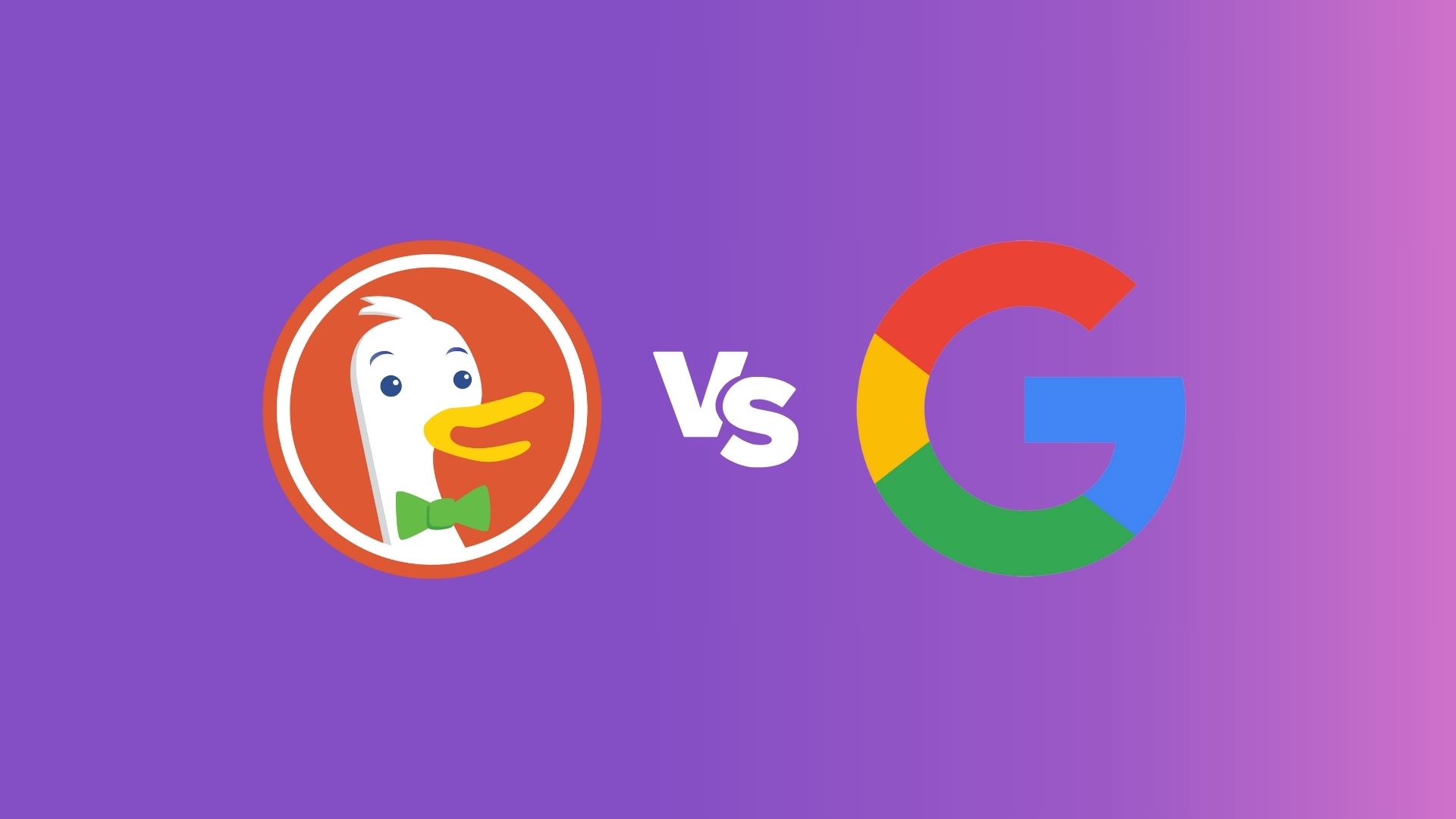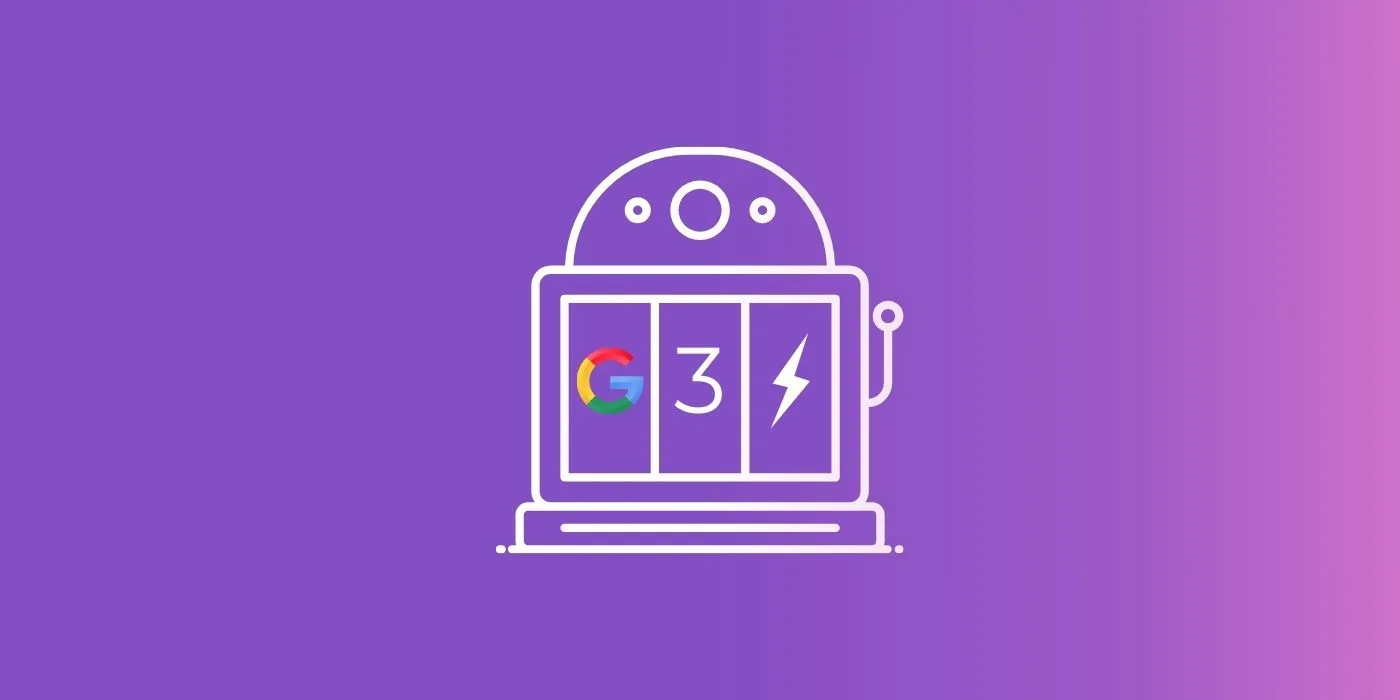DuckDuckGo vs Google: Which is Better for Search in 2025?

Overview of DuckDuckGo and Google
Convenience and privacy are two elements that differentiate DuckDuckGo and Google. Let’s take a quick overview of these two powerful search engines.
DuckDuckGo: The privacy-focused search engine
Founded in 2008 by entrepreneur Gabriel Weinberg, DuckDuckGo became an intriguing alternative to Google and Yahoo. It’s still not on par in terms of market share, though. Google still has the lion’s share of 92% in the market.
However, DuckDuckGo is gaining traction today. Their value proposition lies in privacy protection policy, capitalizing on the need to safeguard user data. This campaign has catapulted DuckDuckGo to third in mobile search queries in the United States.

Google: The search engine giant
We all know what Google is.
Google is still dominating its competition. Its speed and accuracy in answering user searches remain unmatched by other search engines. Google’s search algorithms and web crawlers allow for quick crawling and indexing of relevant content.
There’s a bit of a catch, though. Google tracks users’ search data for targeted ads and other purposes. As people become wary of this setup, Google is encouraging them to try a more private search engine.
This trend has even caught the attention of webmasters, online shops, and digital marketers. If you’re doing SEO for an eCommerce site, ranking your online store higher is not just limited within Google’s confines. You can also optimize for other search engines.

Privacy and Data Handling of Both Search Engines
User data protection is necessary to establish trust in the digital age. Here’s how Google and DuckDuckGo handle user tracking and data storage.
DuckDuckGo’s privacy-centric approach
Unlike Google, DuckDuckGo does not record your search queries and search history.
DuckDuckGo’s detailed attention to user privacy sets them apart from the competition. It provides multiple privacy layers, which we’ll analyze below:
- Smarter encryption: The DuckDuckGo search engine provides an encryption list of over 10 million websites, including sites that support HTTPS (Hypertext Transfer Protocol Secure). The list also uses local encryption, meaning data is stored on your device, not on DuckDuckGo’s servers.
- Global Privacy Control (GPC): Enabling DuckDuckGo’s GPC requests websites not to sell or share your data. Activate the GPC by downloading the DuckDuckGo Privacy Essentials browser extension or the DuckDuckGo Privacy Browser mobile app.
- Social media protection: Embedded content from social media platforms comes with a tracking code. DuckDuckGo blocks embedded content, allowing you to do private browsing on social media. However, this DuckDuckGo feature is only applicable to Facebook for now.
In addition, DuckDuckGo protects your location and privacy. Its servers don’t track users’ locations, and you can manually set a custom location to control the personalized ads you’ll receive.
DuckDuckGo is undoubtedly the most private search engine you’ll find. It is available on most mobile and desktop browsers if you need a privacy-focused search engine.

Google’s data collection and privacy concerns
Regarding search results accuracy and depth, Google is the best search engine out there.
Google utilizes user data for personalized results and UX (User Experience) optimization. That is a good purpose, especially if you don’t want to see product ads that you’re not interested in.
However, Google’s data collection structure has raised concerns for user privacy. Google collects information from your Google search queries, browsing activities, and location history. Oh it also gathers data from your browsing history on apps like Gmail and YouTube.
Google has faced search leakage controversies such as the Incognito mode tracking lawsuit and the Privacy Sandbox scrutiny. Still, Google argues that it strives to address online privacy, starting with these privacy features:
- Encryption technology like HTTPS and Transport Layer Security
- Safe Browsing feature that automatically detects and blocks security threats
- 2 Step Verification that allows for more secure account sign-ins
In addition, Google allows you to export a copy of your information and delete it from your account.
Google has surely taken some serious steps to protect user data and online privacy. However, it still lags behind DuckDuckGo in this aspect.

Search Algorithm and Quality of Search Results
DuckDuckGo may be the best privacy-focused alternative, but can it match Google Search’s algorithms?
DuckDuckGo’s search algorithm overview
Thanks to its commitment to more private browsing, DuckDuckGo produces unbiased search results.
But does this privacy-centric approach affect search results quality? That’s the number one question posed by people wanting to use DuckDuckGo.
Before answering that question, let’s delve into the unique search features of DuckDuckGo:
- DuckDuckBot: Google has the “Googlebot”, and DuckDuckGo has the “DuckDuckBot”. It constantly indexes websites and builds DuckDuckGo’s searchable database.
- Instant Answers: DuckDuckGo supports the no-click search results feature. With over 100 specialized sources, it directly shows detailed answers to your queries on the search results page. DuckDuckGo’s Instant Answers can show real-time information, mathematical calculations, and concise topic overviews.
- Bangs: Bangs, or “!Bangs”, is a feature that allows you to search directly on other websites without leaving the search engine. You just type in the exclamation mark (!) before your choice keyword. For example, typing “!tw basketball” will let you search for basketball directly on the Twitter search system.
DuckDuckGo offers unique search algorithm elements. However, it provides lower search personalization since it doesn’t track your search history. Moreover, we’ll discuss in the following section, Google still packs more advanced features.

Google search algorithm and its complexities
Privacy concerns aside, the Google search algorithm is the most reliable in delivering reliable search results.
It is also a complex system characterized by multiple layers of technology. Here’s what we know about what makes Google search work:
- User behavior: When Google processes a search term, it considers factors other than keyword usage, such as browsing history, location, seasonal trends, and engagement patterns.
- Search ranking factors: There are many ranking factors that affect Google search results. These include website authority, relevance, backlink profile, localization, and UX.
- Massive index database: Google’s index is expanding, even with trillions of web pages. Its global reach guarantees accessibility even with varying locations and language preferences.
In addition, Google continues to roll out advanced features such as rich snippets and the Knowledge Graph. These features have changed the landscape, particularly how websites run their SEO (Search Engine Optimization) strategies.
Furthermore, Google periodically updates its search algorithms, which challenges webmasters by forcing them to find new ways to maintain their rankings on Google searches.
That’s why studying Google’s intricacies is a trend today. Digital marketing agencies like Fortis Media build up their expertise on Google’s privacy features and personalized search results. This becomes their unique selling proposition, helping websites thrive in a highly competitive market.
User Experience and Interface
Regarding UX and UI, simplicity and customization are the differentiators between DuckDuckGo and Google.
DuckDuckGo’s simple and clutter-free interface
Simple, clutter-free, and clean interface — this is what makes DuckDuckGo’s homepage a little different.
DuckDuckGo’s homepage offers a clean white background. The search bar is at the top, with their unique logo in the upper left corner. Blue is used as an accent color, and that’s basically it.
If you want a fresh, simple interface, DuckDuckGo is the way to go. It also offers helpful features, including the following:
- Predictive elements: You’ll see predictive text suggestions as you type search terms on the search bar.
- Image results: DuckDuckGo offers an image search button if you’re searching for specific photos or visuals.
- Customization options: DuckDuckGo doesn’t show advanced options on the initial screen to keep things simple. Instead, you can click on the gear button on the homepage to access customizations. These options allow you to set different filters and other modifications.
In addition, DuckDuckGo displays “Instant Answers” or relevant answers to your queries. This information is highly relevant and accurate, so you won’t have to click on any link in search results.

Google’s feature-rich interface
While DuckDuckGo capitalizes on simplicity, Google leverages its feature-rich interface.
Google has become a popular search engine for its comprehensive search experience. Here are some of its powerful search features:
- Knowledge Graph: Do you see those information boxes on Google’s search results page? These boxes are produced through the Knowledge Graph feature. Google’s Knowledge Graph and regular search results display relevant, factual information.
- Unmatched customization: Google offers search filters that include regional preferences, dates, image sizes, and news sources. It also utilizes your search history to further customize your search results.
- Integrations with Google services: Google is a vast network of apps and services. You can interlink different Google services, such as Google Search, Gmail, Calendar, and Maps.
Google relies on your personal information and search history to personalize your experience. This is the perfect search engine if you’re amenable to this setup.
Specialty Features and Tools
Let’s review the special features and tools that characterize DuckDuckGo and Google search engines.

DuckDuckGo’s unique features
DuckDuckGo’s value proposition lies in these unique features:
- Zero data collection: DuckDuckGo doesn’t gather any personal data or search history information. Even the users’ IP addresses are anonymized to make the browsing experience more private.
- Bangs: The !Bangs feature makes way for quicker searches. You can search directly on other websites by simply prefixing your searches with an exclamation point (!).
- Instant answers: DuckDuckGo doesn’t have Google’s Knowledge Graph but offers no-click search results. This section is located below the search bar of the results page.
DuckDuckGo doesn’t have the most powerful search algorithm but provides the best privacy features.

Google’s specialized tools and services
While Google is renowned for its search engine and Chrome browser, its reach extends beyond these two components.
Its ecosystem of interlinking services presents a high level of convenience to users. Take a look at these Google apps and services that you can connect:
- Personal use: Gmail, Google Drive, Google Calendar, Google Photos, and Google Keep
- Business and productivity: Google Workspace, Google My Business, Google Cloud
- Specialized searches: Google Scholar, Google Books, Google News, Google Finance, Google Shopping
Google even offers free analytics services in niche markets. For instance, they recently rolled out the Google Analytics 4 for marketing agencies and webmasters.

The Main Downsides of using DuckDuckGo
If you want a more personalized search experience, DuckDuckGo may not be for you.
These are the main downsides to using the DuckDuckGo app or their browser extension:
- Less personalization: Since it doesn’t track your search history and personal data, DuckDuckGo offers less personalization. DuckDuckGo may not be able to personalize ad targeting, resulting in fewer ads that connect with your interests.
- Less comprehensive search results: Unlike Google, DuckDuckGo still lags in index database and crawling ability.
The Main Downsides of using Google
Overall, Google is the best at what it does. However, it comes with several low points, including the ones below:
- Privacy issues: Privacy risks are the top drawbacks of using Google. It relies greatly on your search history and data, which could expose your personal information.
- Same results: Since it aligns with your browsing history, you might occasionally see the same search results. This could limit your ability to discover new information.
DuckDuckGo vs Google: Which One to Choose?
Zero data collection is what makes DuckDuckGo safe. Personalization and a massive database are what make Google powerful.
If you want a more customized ad targeting, choose Google. If you don’t want your personal information to be used for advertising purposes, choose DuckDuckGo. There are two sides of the coin when choosing between DuckDuckGo and Google.
The algorithms of these two search engines are constantly changing, though. Take it from digital marketing experts like Fortis Media. They continuously study and observe the trends surrounding DuckDuckGo and Google. You can always consult these experts for more information about this topic.
FAQs about DuckDuckGo and Google
What is the safest search engine?
DuckDuckGo is the safest search engine because it is committed to zero data collection and has a comprehensive privacy protection structure. It anonymizes the addresses provided by Internet Service Providers and does not track users’ search activities and browsing habits.
Should I use DuckDuckGo instead of Google?
If you want more privacy and a simpler interface, you should use DuckDuckGo instead of Google. DuckDuckGo doesn’t collect any personal data and doesn’t track your IP address, making it perfect for privacy-focused, basic web searches.
Is Duckduckgo a browser or a search engine?
Like Google, DuckDuckGo is a search engine and a browser. It offers a mobile app and a web browser with comprehensive privacy features. You can also visit duckduckgo.com in your default browser to search for information using DuckDuckGo.
Read our other articles

iGaming SEO: The Ultimate Guide to Ranking iGaming Sites in 2025


How SEO and PPC Work Together: A Practical Guide


What is a PPC Agency? A Comprehensive 2025 Guide






